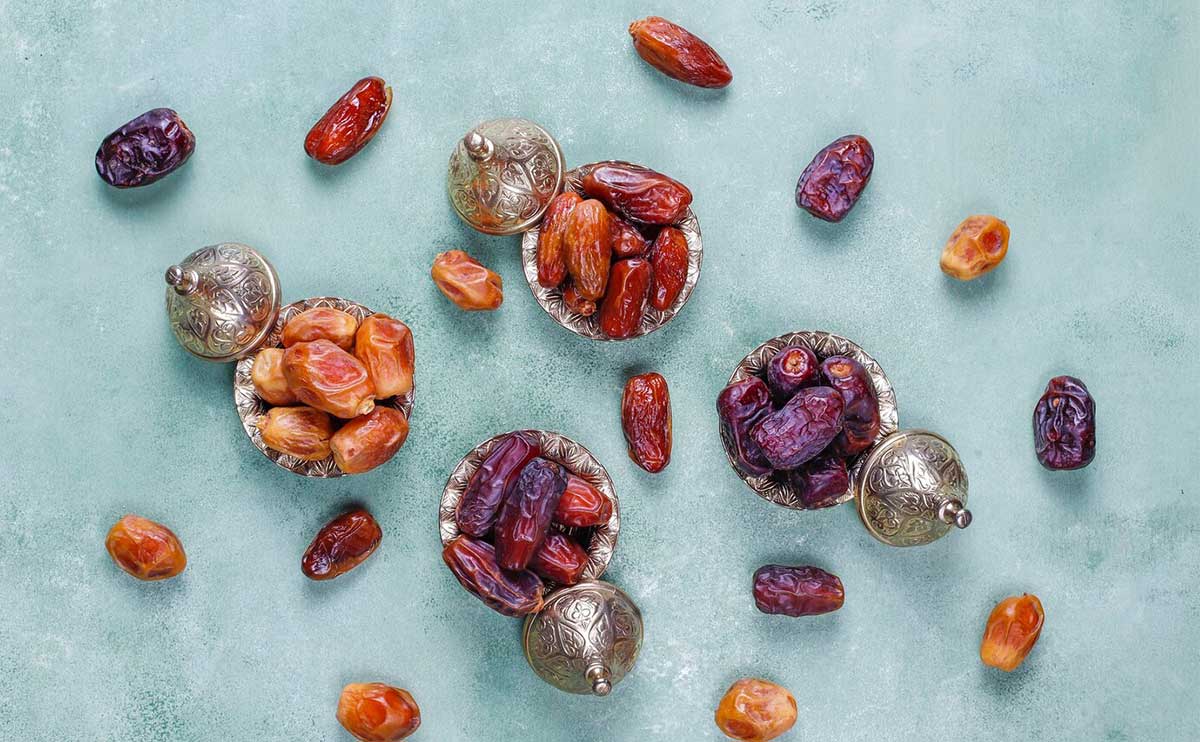Dates are high in fiber and antioxidants. Their nutritional benefits may support brain health and prevent disease.
Dates are the fruit of the date palm tree, which is grown in many tropical regions of the world. Dates have become quite popular in recent years.
Almost all dates sold in Western countries are dried.
You can tell whether or not dates are dried based on their appearance. Wrinkled skin indicates they are dried, whereas smooth skin indicates freshness.
Depending on the variety, fresh dates are fairly small in size and range in color from bright red to bright yellow. Commonly consumed varieties include Medjool and Deglet Noor dates.
Dates are chewy with a sweet flavor. They are also high in some important nutrients and have a variety of advantages and uses.
This article will discuss 8 health benefits of eating dates and how to incorporate them into your diet.
1. Very nutritious
Dates have an excellent nutrition profile.
Since they’re dried, their calorie content is higher than most fresh fruit. The calorie content of dates is similar to that of other dried fruits, such as raisins and figs Most of the calories in dates come from carbs. The rest are from a very small amount of protein. Despite their calories, dates contain some important vitamins and minerals in addition to a significant amount of fiber.
A 3.5-ounce (100-gram) serving of Medjool dates provides the following nutrients Calories: 277
Carbs: 75 grams
Fiber: 7 grams
Protein: 2 grams
Potassium: 15% DV
Magnesium: 13% DV
Copper: 40% DV
Manganese: 13% DV
Iron: 5% DV
Vitamin B6: 15% DV Dates are also high in antioxidants, which may contribute to many of their health benefits
2. High in fiber
Getting enough fiber is important for your overall health.
With almost 7 grams of fiber in a 3.5-ounce serving, including dates in your diet is a great way to increase your fiber intakeFiber can benefit your digestive health by preventing constipation. It promotes regular bowel movements by contributing to the formation of stool In one study, 21 people who consumed 7 dates per day for 21 days experienced improvements in stool frequency and had a significant increase in bowel movements compared to when they did not eat dates Furthermore, the fiber in dates may be beneficial for blood sugar control. Fiber slows digestion and may help prevent blood sugar levels from spiking too high after eating For this reason, dates have a low glycemic index (GI), which measures how quickly your blood sugar rises after eating a certain food
3. High in disease-fighting antioxidants
Dates provide various antioxidants that have a number of health benefits, including a reduced risk of several diseases.
Antioxidants protect your cells from free radicals, which are unstable molecules that may cause harmful reactions in your body and lead to disease Compared to similar types of fruit, such as figs and dried plums, dates appear to have the highest antioxidant content Here’s an overview of the three most potent antioxidants in dates:
Flavonoids: Flavonoids are powerful antioxidants that may help reduce inflammation and have been studied for their potential to reduce the risk of diabetes, Alzheimer’s disease, and certain types of cancer Carotenoids: Carotenoids are proven to promote heart health and may also reduce the risk of eye-related disorders, such as macular degeneration Phenolic acid: Known for their anti-inflammatory properties, phenolic acids may help lower the risk of cancer and heart disease
4. May promote brain health
Eating dates may help improve brain function.
Laboratory studies have found dates to be helpful for lowering inflammatory markers, such as interleukin 6 (IL-6), in the brain. High levels of IL-6 are associated with a higher risk of neurodegenerative diseases like Alzheimer’s Additionally, other studies including animal studies have shown dates to be helpful for reducing the activity of amyloid beta proteins, which can form plaques in the brain When plaques accumulate in the brain, they may disturb communication between brain cells, which can ultimately lead to brain cell death and Alzheimer’s disease
5. May promote natural labor
Dates may promote and ease natural labor for pregnant people when consumed during the last few weeks of pregnancy.
6. Natural sweetener
Dates are a source of fructose, which is a natural type of sugar found in fruit For this reason, dates are very sweet and also have a subtle caramel-like taste. They make a great healthy substitute for white sugar in recipes due to the nutrients, fiber, and antioxidants that they provide.
7. Other potential health benefits Bone health
Dates contain several minerals, including phosphorus, calcium, and magnesium. All of these have been studied for their potential to prevent bone-related conditions like osteoporosis Blood sugar control: Dates have the potential to help with blood sugar regulation due to their low glycemic index, fiber, and antioxidants. Thus, eating them may support diabetes management
8. Easy to add to your diet Dates are incredibly versatile and make a delicious snack.
They are often paired with other foods, such as almonds, nut butter, or soft cheese.Dates are also very sticky, which makes them useful as a binder in baked goods, such as cookies and bars. You can also combine dates with nuts and seeds to make healthy snack bars or energy balls, as in this recipe.
What’s more, you can use dates to sweeten up sauces, such as salad dressings and marinades, or blend them into smoothies and oatmeal.
It is important to note that dates are high in calories and their sweet taste makes them easy to overeat. For this reason, they are best consumed in moderation.Dates are definitely worth adding to your diet, as they are both nutritious and delicious.



